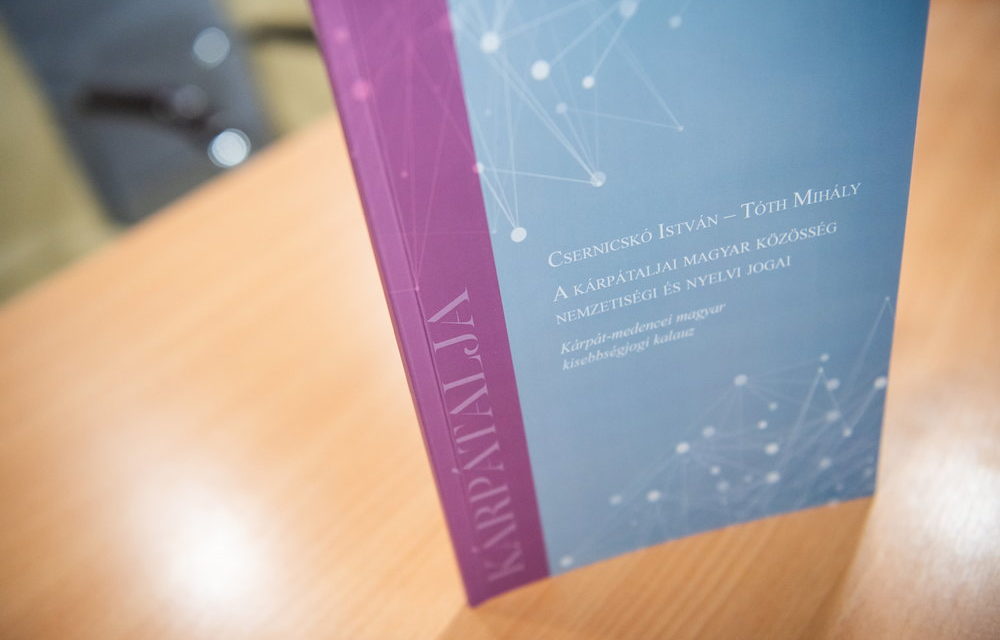The goal is for the Hungarian national communities to be able to proudly live their Hungarianness, their belonging to the nation, to be good citizens of their own country, and at the same time to be able to preserve their identity in the long term - said Prime Minister's Representative Katalin Szili at the presentation of the first volume of the Hungarian Minority Rights Guide in the Carpathian Basin on Wednesday in Budapest.
In the first volume of the series, the authors, linguist István Csernicskó and lawyer Mihály Tóth, present the nationality and language rights of the Transcarpathian Hungarian community. The National Policy Research Institute cooperated in the preparation of the volume.
As the initiator of the volume, the prime minister's agent, who contributes to the negotiation procedures for cross-border autonomy cases, said that if all five volumes of the series are completed by autumn, they will be able to present a vision based on which it can be determined where improvements can and should be made in order to ensure the rights of minorities.
He emphasized that it is very important to be able to compare the minority protection legislation of individual EU member states and associated countries - such as Ukraine since 2017 - with the expectations of the European Union, and he believed that there is an important message in the fact that a country - even if these laws cannot be enforced rules - how well it complies with the legislation on the protection of minorities.
He also mentioned that the aim of the book series is to take a 2021 snapshot of the rights of minority communities trapped outside the borders, and what legislative options and frameworks ensure the rights of minority communities in each country. He added: in this matter, the most sensitive area is the situation of Transcarpathian Hungarians, as well as the Ukrainian legal regulations, because in recent years minority rights in Ukraine have been narrowed in countless cases, which Hungary considers regrettable.
Katalin Szili expressed her hope that Ukraine will return to the minority protection policy along which it started in the 1990s.
It is still important to stand up for each other, and within the framework of good neighborliness and cooperation, Hungary strives for dialogue between the two countries on issues affecting the communities. We are ready for this dialogue at any time, he added.
In Katalin Szili's presentation, she also talked about how, in the past 12 years, important steps have been taken to unify the nation. there is an opportunity for "fine-tuning" in national politics. He added that on April 3, "we must also defend what we have achieved in national politics at the polls."
Zoltán Kántor, director of the Institute for National Policy Research, spoke in his welcome speech: the volume was created with the cooperation of politics, science and public administration. As he said, it is important not only because it has scientific value, but also because they have a political intention to make the rights of minorities known as widely as possible. He indicated: the volume will soon be available for download from the website of the research institute.
At the book launch, Ferenc Kalmár, the ministerial commissioner responsible for the development of Hungary's neighborhood policy at the Ministry of Foreign Affairs and Trade, was in the audience. Commenting on the round table discussion with the authors, he spoke about how differently the Ukrainian and Hungarian sides think about the rights of minorities. As he said, in Hungary the individual can freely decide how to exercise his minority rights, but in Ukraine the state decides this. Ferenc Kalmár thanked the authors for their work.
MTI
Photo: MTI/Zoltán Balogh













